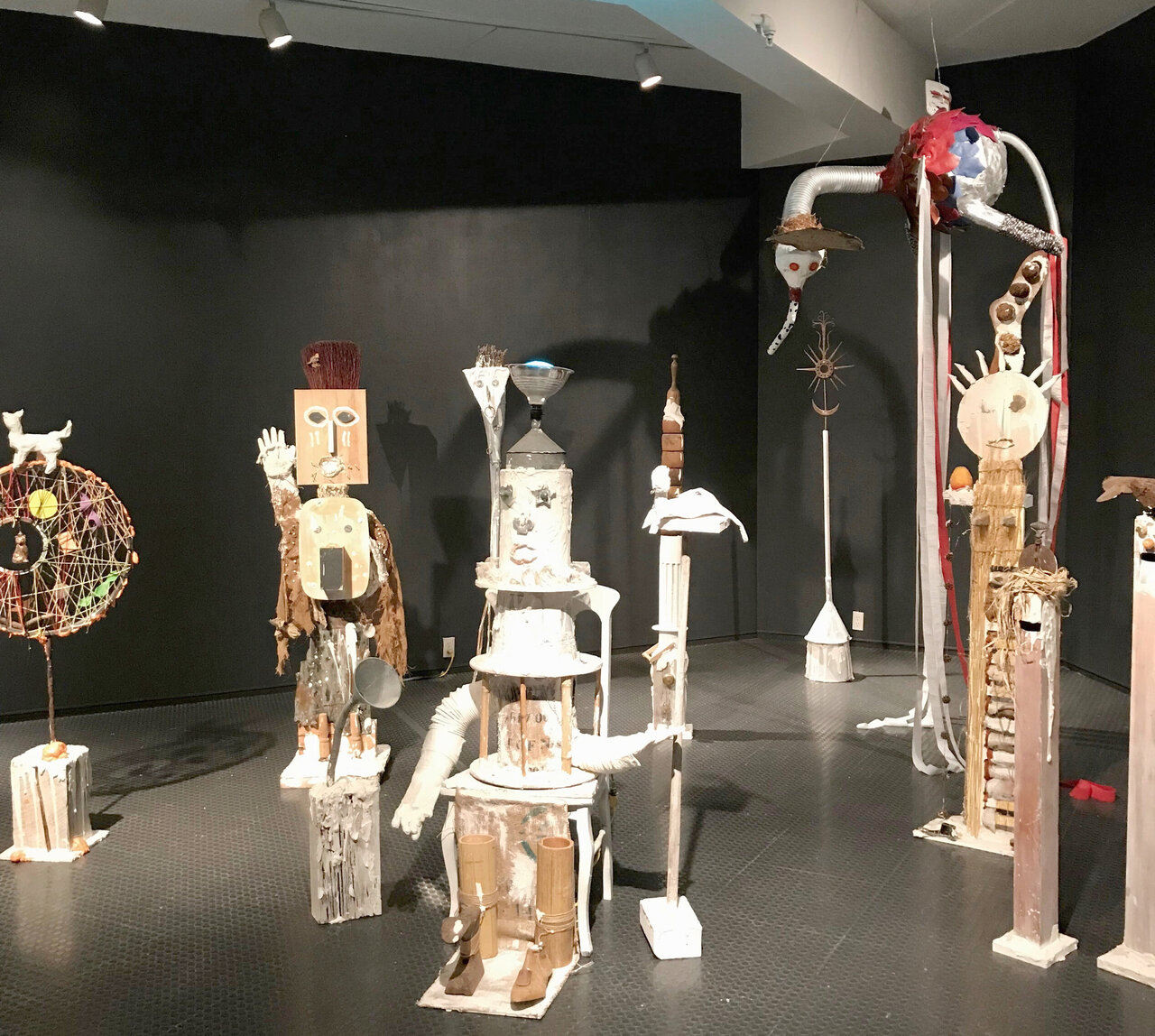Gods, Totems and Tricksters
Joe Caruso
Friday, February 1, 2019 to Sunday, March 24, 2019
Opening Reception: February 1, First Friday, 5:30-8:00 PM.
Artist Talk: Saturday, February 9, 2:00 PM.
First Friday Reception: March 1, 5:30-8:00 PM.
Collaborative Events:
March 2, Performance by teXtmoVes, 3:00 PM.
March 16, “Creating Your Vision,” photography workshop with David Lee Black. Meet and greet: 10:30 AM, Workshop 11:00 AM – 1:00 PM.
March 23, Performance, Black Sheep Contemporary Ensemble, 2 PM.
Closing Reception: March 24, 12-4 PM.
Gallery Hours: Fridays 2-4 PM, Saturdays, and Sundays, Noon to 4:00 PM and by appointment: joecaruso100@gmail.com.
With references to the field of archaeology, Joe Caruso’s recent work which consists of painting, sculptural assemblage and combinations of both, explores the themes of discovery, time and transformation, and also draws inspiration from ancient mythology.
In his sculpture, Caruso uses objects reclaimed from the street, from bins on trash day, from thrift shops and from his studio. Some are made of weathered wood or rusted metal, suggesting age and a time gone by and other objects are no longer needed, discarded and perhaps forgotten. They become a starting point for something new and re-emerge, transformed into fresh compositions, given new life and meaning.
Just as the archaeologist’s exploration involves destruction and reconstruction, the surfaces of Caruso’s paintings and painting/sculpture combinations are worked and reworked over time, a process of applying paint and then scraping it off, digging and finally consolidating and solidifying when heat is applied. Materials in his painting practice include oil, wax, sand, glass, shells and minerals. Sometimes using shards of plaster, remnants from the sculptural assemblages. Some have impressions and indentations that remind one of fossils. The painting surfaces are rough and crude on the one hand and have a hint of sparkle on the other that call to mind weathered walls with flicks of sunlight. Lines crisscrossing the surfaces are dug deep and might be viewed as large drawings.
A third dimension is sometimes created by adding sculptural elements to the painting surfaces or by placing them on an attached shelf. These combination pieces are often wrapped in wire in the configuration of a grid resembling a window, inviting the viewer to come up close to discover the artifacts within.
